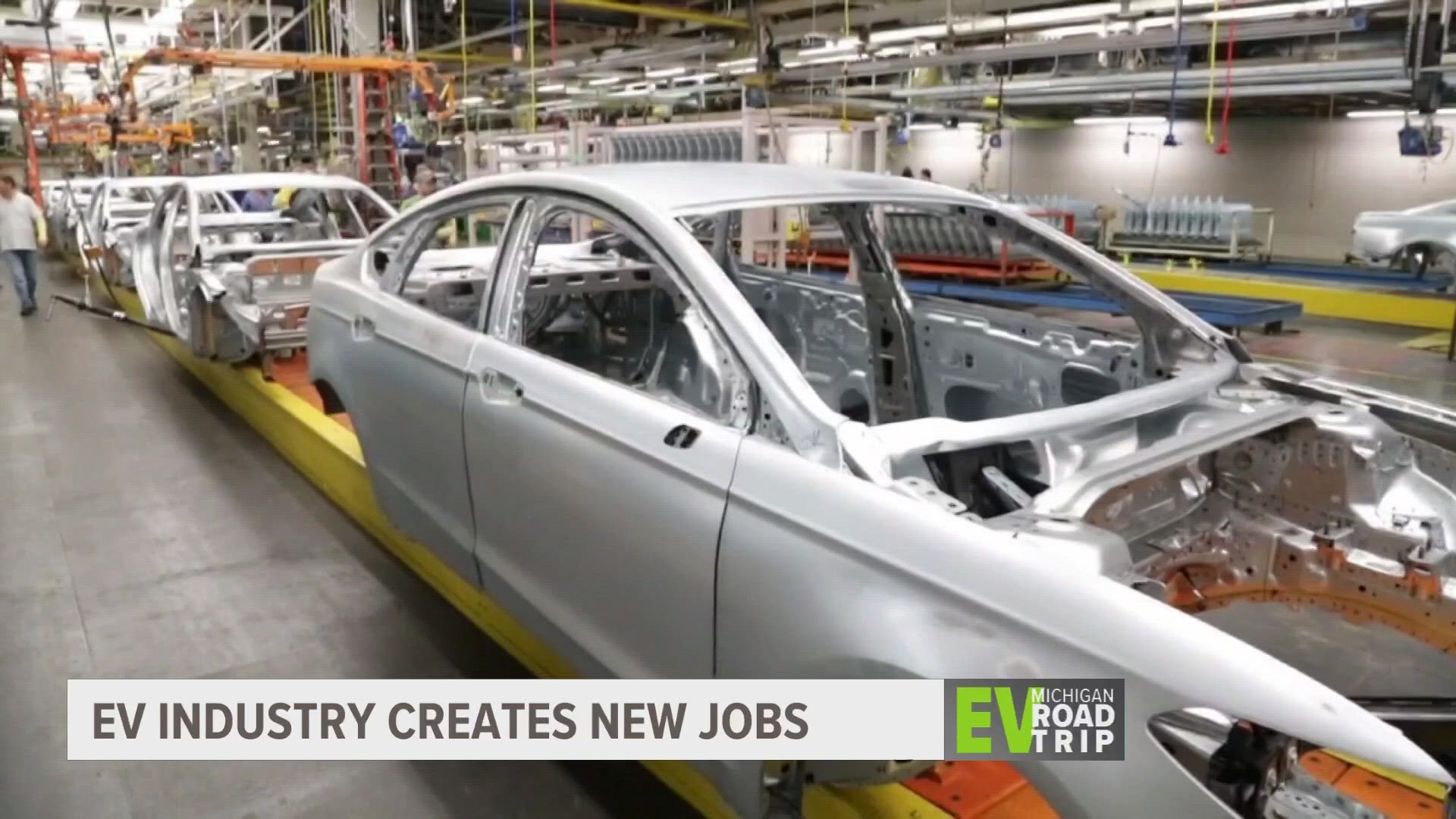DETROIT — The electric vehicle industry is creating thousands of jobs across Michigan.
Lt. Gov. Garlin Gilchrist and Gov. Gretchen Whitmer hope to put the state at the forefront of EV innovation. They’ve created the EV Jobs Academy to help workers transition into the industry.
"We have a chance to train new people in these skills and to update the skills of people who are already working," Lt. Gov. Gilchrist said. "There's a transitional moment in our mobility economy that Michigan professionals are ready to seize."
Since the passage of the Inflation Reduction Act in August 2022, Climate Power reports that more than $20 billion is being invested in clean energy manufacturing just in Michigan alone. That’s creating more than 13,000 jobs and with another 167,000 expected in the next decade.
One Holland business is a part of this supply chain. LG Energy Solutions makes lithium-ion batteries used by General Motors, Stellantis and Ford. They’ve already hired 1,000 workers and are planning an expansion that will require 1,000 more.
"It can be anything from human recourse to an engineer or someone whose college might not be their thing. We can get them in on the floor with on-the-job training and it's great pay, with great benefits," said Val Gent, communications manager with LG Energy Solution.
To help companies like LG Energy Solutions, colleges and universities across the state are ramping up electric vehicle education programs. They’re preparing students for the future of the automotive industry as it grows.
"The EV scholar program is built on the idea to really educate and inform and attract today's students into the opportunities that exist within this emerging electric vehicle or EV industry," said Garth Motschenbacher of the College of Engineering at Michigan State University.
The EV Scholarship program is for students at MSU, the University of Michigan and Michigan Tech. Motschenbacher says it’s essential not only for educating students but keeping jobs in Michigan.
Garth went on to say, "The electric vehicle market or EV market, as we're going to call it, also has this tremendous opportunity for the state of Michigan from a talent attraction standpoint. But how do we sustain the battery? How do we, you know, renew the battery? How do we, you know, dispose of the battery safely or remake it into something else? All of these things are part of the bigger picture of what the EV program or EV industry is about."
While many programs focus on EV creation and innovation, Ferris State University is making sure the future workforce is ready to meet the demand for mechanics and technicians.
"There is a serious lack of technicians in the field that can service electric vehicles. And it's a more difficult problem than we originally anticipated, or originally think, because we started out with a shortage of 77,000 technicians for conventional vehicles," said Patrick English, department head of the FSU School of Automotive & Heavy Equipment Department. "And now as the technology changes, we’re that much further behind to have people be able to service the electric vehicles."
Ferris also has programs for design and engineering. The culmination of all these programs is keeping the workforce here in Michigan to boost the state economy.
"It's going to be a movement that has a tremendous effect on everybody in the culture and in the population," said Motschenbacher.
More companies are looking to bring their electric vehicle businesses to Michigan. Battery plants have been proposed in Green Charter Township, Spring Lake and Comstock Park.
In Detroit, GM and Ford are both building and expanding electric vehicle facilities in Metro Detroit. We got a sneak peek of Ford's new Rouge Electric Vehicle Center. They're building the F-150 Lightning and are already expanding.
Check out the tour below:
►Make it easy to keep up to date with more stories like this. Download the 13 ON YOUR SIDE app now.
Have a news tip? Email news@13onyourside.com, visit our Facebook page or Twitter. Subscribe to our YouTube channel.

